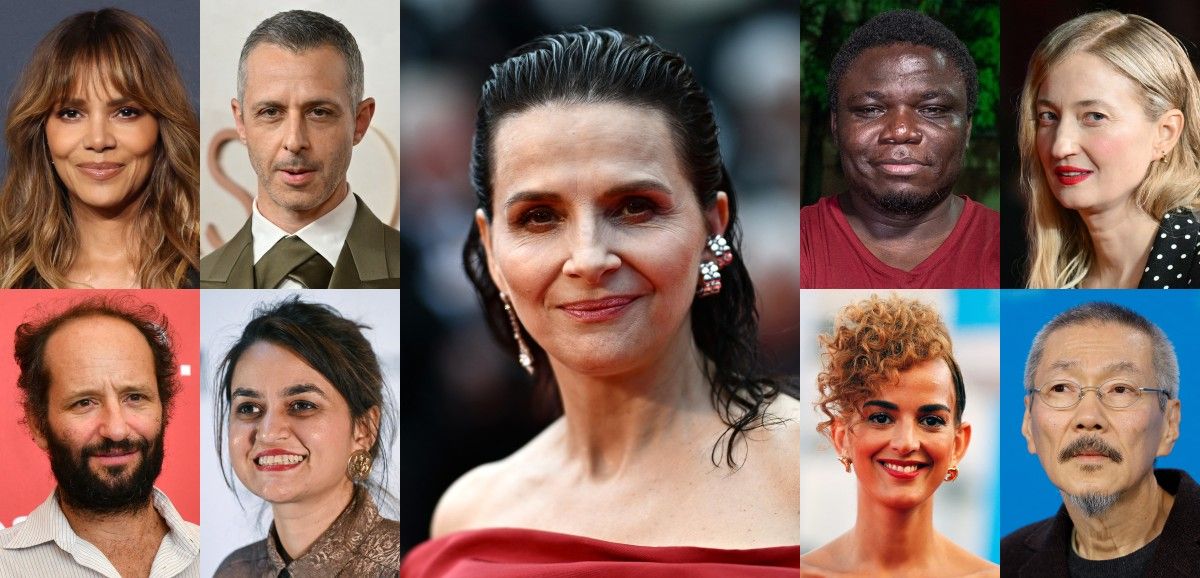
The 78th edition of the Cannes Film Festival kicks off on May 13 with 21 films vying for the Palme d'Or. Presiding over the jury is acclaimed actress Juliette Binoche, and this year's edition brings a spotlight on immersive cinema. Until May 24, the Croisette will once again pulse with the heartbeat of world cinema.
There was a time when Cannes carried an air of carefree charm, when passersby froze mid-step at the chance to lock eyes with Sophia Loren or Alain Delon. People exchanged smiles, hellos, and autographs between melting ice creams and cinema tickets, on a sun-drenched—or rain-soaked—Croisette. Today, Cannes retains its legendary glamour, but its stars feel farther away, high above behind increasingly strict red-carpet barricades, chased by the zoom lenses of photographers. And yet, the magic still happens.
From May 13 to 24, this 78th edition will showcase 21 films in competition—stories full of hope, rage, longing, and resistance from every corner of the globe. Presiding over the jury is Juliette Binoche, a towering figure in global cinema. Joining her is a cosmopolitan panel that includes Halle Berry, Jeremy Strong, Leïla Slimani, Carlos Reygadas, Dieudo Hamadi, Alba Rohrwacher, Payal Kapadia, and Hong Sang-soo—a true reflection of the diversity of today’s cinematic landscape.
This year’s selection is as rich as it is varied. Iran is in the spotlight with two powerful and politically charged films: A Simple Accident by the elusive Jafar Panahi, and Mother and Child by Saeed Roustaee, an intense family drama. These works, like their creators, speak to the spirit of defiance.
France is making a strong showing as well. Julia Ducournau returns with Alpha, set during the AIDS crisis and seen through a child’s eyes. Hafsia Herzi adapts The Last One by Fatima Daas, a deeply personal and political portrait of a young Muslim lesbian woman.
Veterans of the Croisette, the Dardenne brothers, Jean-Pierre and Luc, present Young Mothers, a social drama following five women sharing motherhood in a Belgian shelter. The Belgian auteurs have already won two Palmes d'Or—Rosetta (1999) and The Child (2005). They’re joined by Wes Anderson, Tarik Saleh, Ari Aster, Richard Linklater, and Kelly Reichardt, each bringing their own unmistakable voice to the global cinema stage.
A new generation is also making its mark. Scarlett Johansson, Kristen Stewart, and Harris Dickinson—better known for their work in front of the camera—will debut their first directorial efforts in the “Un Certain Regard” section.
Reflecting artistic and technological evolution, Cannes now includes a full immersive section. Housed at the Carlton Hotel from May 14 to 23, it transforms the space into a temple of alternative realities. Nine works are in competition, along with two out-of-competition pieces and five productions from Luxembourg. These experiences blend VR, AI, video mapping, and interactivity, creating poetic, disorienting journeys that transcend the traditional screen—inviting the viewer to step inside and feel the story from within.
The immersive jury will be led by Luc Jacquet, alongside Laurie Anderson, Tania de Montaigne, Martha Fiennes, and Tetsuya Mizuguchi. They will award the Best Immersive Work prize on May 22 in a dedicated ceremony.
For twelve days, Cannes reclaims its crown as the capital of cinema and emotion. One of the highlights: Tom Cruise's emotional farewell in the latest Mission: Impossible, premiering worldwide. Another: Robert De Niro, at 81, receiving an honorary Palme d'Or for his lifetime of work.
Beyond the flashbulbs and fame, Cannes is still that place where you can watch a film under the stars from a deckchair on the beach, hear the wind whisper through the palms, and laughter echoing through the narrow streets of the Suquet. In that rare blend of the sacred and the fleeting, eyes are fixed on the screen, and gowns shimmer for a moment of shared dreaming.
More than any prize, Cannes lives on in the echoes of its walls—the thunderous applause, the hushed silences before a screening, an actor’s tears backstage, a director’s sly nod, and the surf crashing onto golden sand.
In 2025, cinema once again turns a thousand-tongued Babel into a sacred place of unity. The world will watch Cannes, and humanity will exist—through the lens or the stars—for the brief, dazzling duration of a festival.




Comments